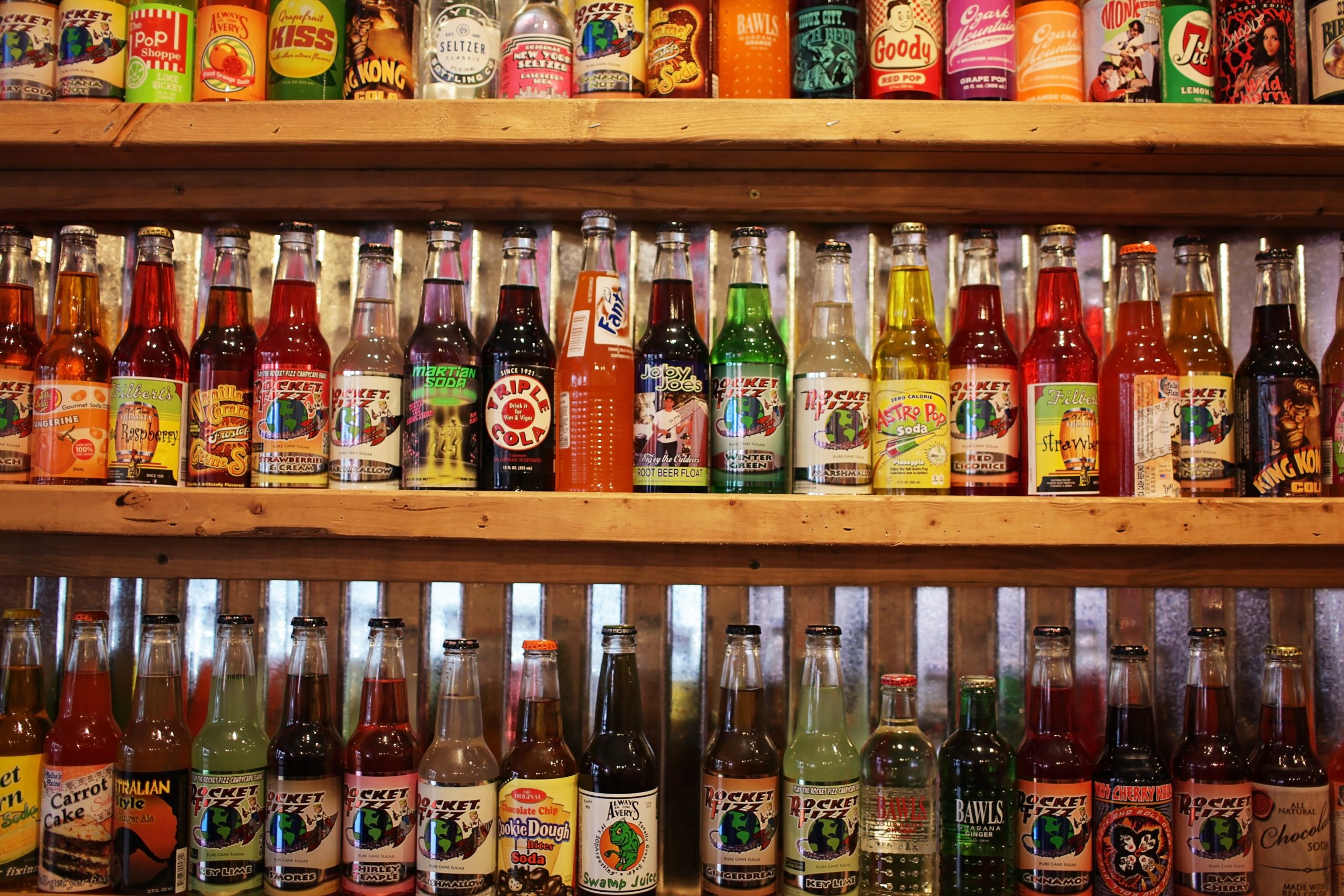
Sugar-sweetened beverages (SSBs), or sugary drinks, are liquids that are sweetened with various forms of added sugars (such as high-fructose corn syrup, cane sugar or fruit juice concentrates). These contain significant calories – often called “empty calories”– and can lead to weight gain. According to American Institute for Cancer Research (AICR), excess body fat is a risk factor for many types of cancers. One of AICR’s Cancer Prevention Recommendations is to limit consumption of sugar-sweetened beverages.
Limiting sugary sodas, energy drinks and other sugar-sweetened beverages reduces the risk of cancer by helping to avoid excess weight gain. Popular beverages that often have added sugars are flavored coffee, ready-to-drink tea, regular soda, fruit drinks, energy and sports drinks, and alcoholic drinks. Many people also add sugar to coffee or teas.
Alcoholic drinks like cocktails can be a double whammy. The added sugars in alcoholic beverages and mixers increase calories, and the alcohol itself contributes a significant amount as well. If drinking more alcoholic drinks per day than what is recommend by the Dietary Guidelines for Americans, the calories really add up.[1]
The Centers for Disease Control and Prevention (CDC) reports that 49% of adults drank a sugar-sweetened beverage on a given day in 2011-2014. Among adults, SSB intake is higher among males, young adults, non-Hispanic Black or Mexican American adults, or adults with low-incomes.[2]
What’s the Concern?
It is easy to consume excess calories from SSBs without realizing it. The body stores the excess calories from the added sugars as fat. Excess body fat is a risk factor for several diseases, including many types of cancer. By mostly choosing beverages like water, unsweetened tea, or unsweetened coffee, it is easier to manage calorie intake.
Some people use no-calorie sugar substitutes made with stevia (extracted from the leaves of the stevia plant) or artificial sweeteners as an alternative to added sugars. There is no strong evidence that links artificial sweeteners, which include sucralose (Splenda®), saccharine (Sweet’N Low®) and aspartame (Equal®), to cancer. The evidence is unclear whether beverages with artificial sweeteners support weight loss or maintaining a healthy weight. It is important to remember that sweeteners like agave, brown rice syrup, coconut sugar, honey, maple syrup, and molasses all add calories like refined white sugar or high-fructose corn syrup.
What about SSBs and Cancer Treatment?
Many times, people find it easier to drink than eat when dealing with side effects from treatment. One downside of drinking excess calories from SSBs is that it can reduce appetite. In turn, nutrient intake from food is reduced further and leads to an insufficient diet.
When Dealing with Unintentional Weight Loss
Sometimes people need extra calories because they struggle to maintain weight. Choosing natural sweeteners that provide calories like agave, honey, and maple syrup may be useful in smoothies, coffee, or tea. You can add both natural sweetness and calories by adding fruit chunks or fruit puree to smoothies.
Alternative ways to get healthy calories besides consuming high calorie beverages is by using avocado, nut butters, plant-based oils, and whole grains in recipes. These items can add calories and also provide other important nutrients. If unintentional weight loss continues to be a concern, consider the overall nutritional impact of adding in 100% fruit juice, flavored milk or oral nutritional supplements (for example, Boost® and Ensure®). While these liquids contain a significant amount of sugar, they also provide other essential nutrients such as protein, calories and Vitamin C. It may be helpful for you to consult with a registered dietitian at your cancer center to prioritize your nutritional needs.
It is important to consume adequate water. Talk with the healthcare team about daily water intake.
When Dealing with Unintentional Weight Gain
Many people gain excess weight during cancer treatment. Reduced physical activity, fatigue and fluid balance often play a role.
Excess sodium intake may affect fluid retention, water retention and thirst. Talk with the healthcare team about any concern about sodium and water intake. If you are experiencing unplanned weight gain during treatment it is important to evaluate and decrease the amount of SSB’s that you may be drinking.
When Dealing with Altered or Metallic Taste
Some people experience altered taste while on cancer treatments. Some simple modifications to water may help. Try:
- Decreasing sweetness and increasing the tartness using citrus juices
- Adding fresh or frozen fruit, fresh vegetables like cucumber, or herbs like mint
- Experimenting with the temperature of the water. Try it ice cold, room temperature or hot with a squeeze of citrus fruit juice.
When Dealing with Diabetes or Blood Glucose (Sugar) Fluctuations
Artificial sweeteners are used in a variety of beverages. They can reduce carbohydrate intake especially for those concerned about blood glucose levels. Research does not link artificial sweeteners to cancer, but strong research links SSB consumption to excess weight gain, which is linked to increased risk for cancer.
How Do SSBs Fit into a Healthy Eating Plan?
SSBs can fit into a healthy diet when used sparingly, during treatment when you have taste changes or digestive issues, and if there is something you really love, as a special treat. Overall, it is best to avoid SSBs and mostly drink water and unsweetened coffee and tea. Talk with the healthcare team about your goals for daily water and fluid intake
Enjoy a few AICR beverage recipes:
- Aguas Frescas
- Rhubarb Orange Refresher
Resources
Guidelines For Reducing Sugar Intake
Tips For Managing Weight Gain During Cancer
Childhood Cancer and Nutrition
Childhood Nutrition During Treatment
[1] https://www.cdc.gov/alcohol/faqs.htm
[2] https://www.cdc.gov/nutrition/data-statistics/sugar-sweetened-beverages-intake.html
Angela Hummel, MS, RD, CSO, LDN is a consulting dietitian with AICR. She is passionate about helping people make positive diet and physical activity changes for reducing cancer risk and for healthier survivorship. She initiated and developed two oncology nutrition programs in cancer centers.

